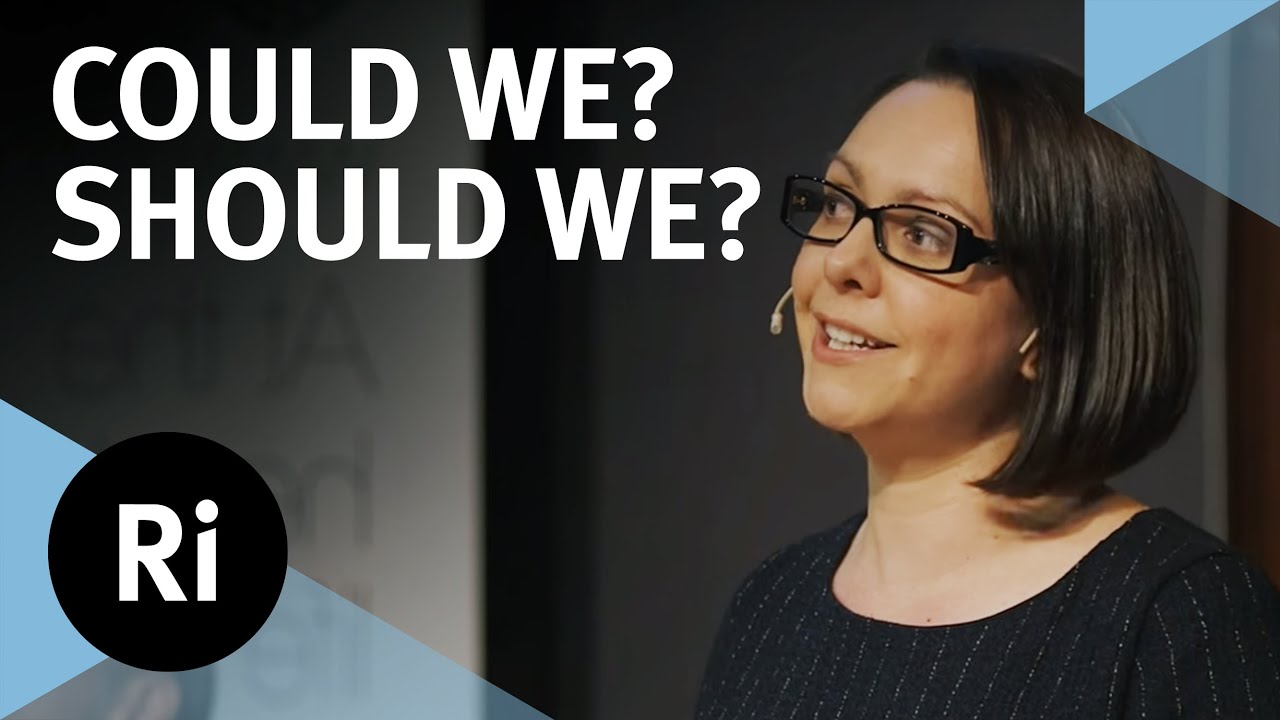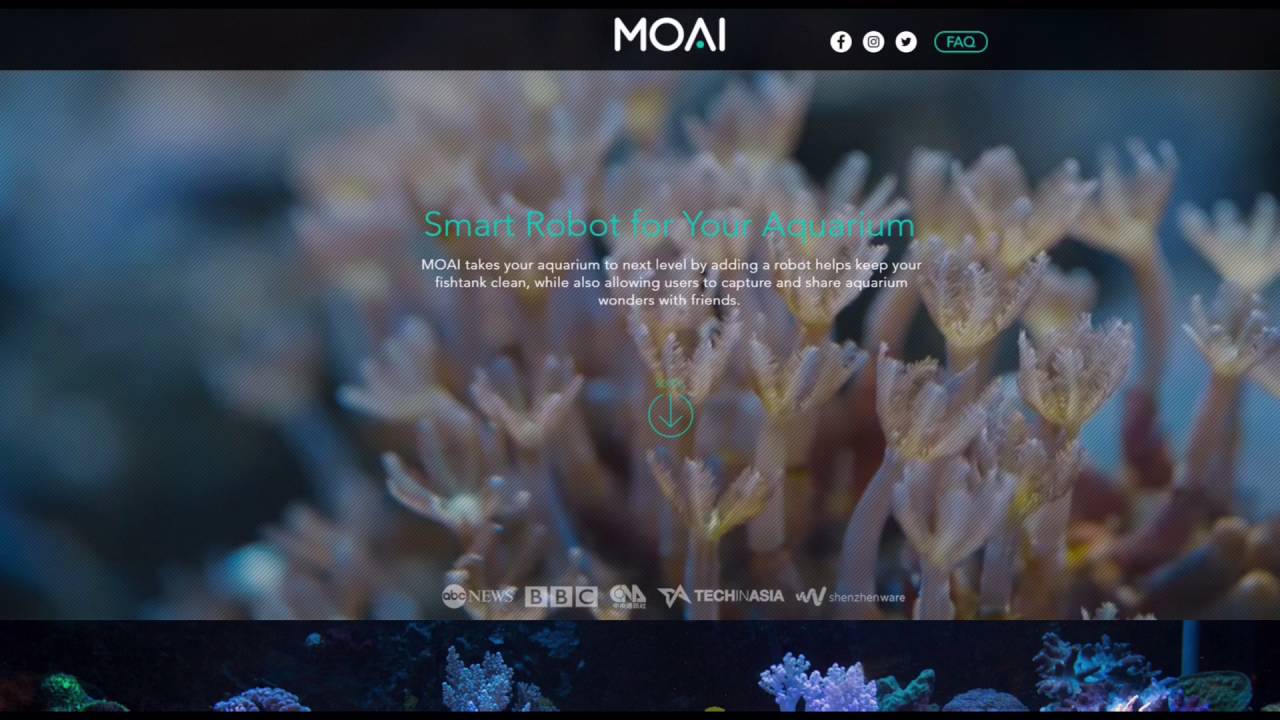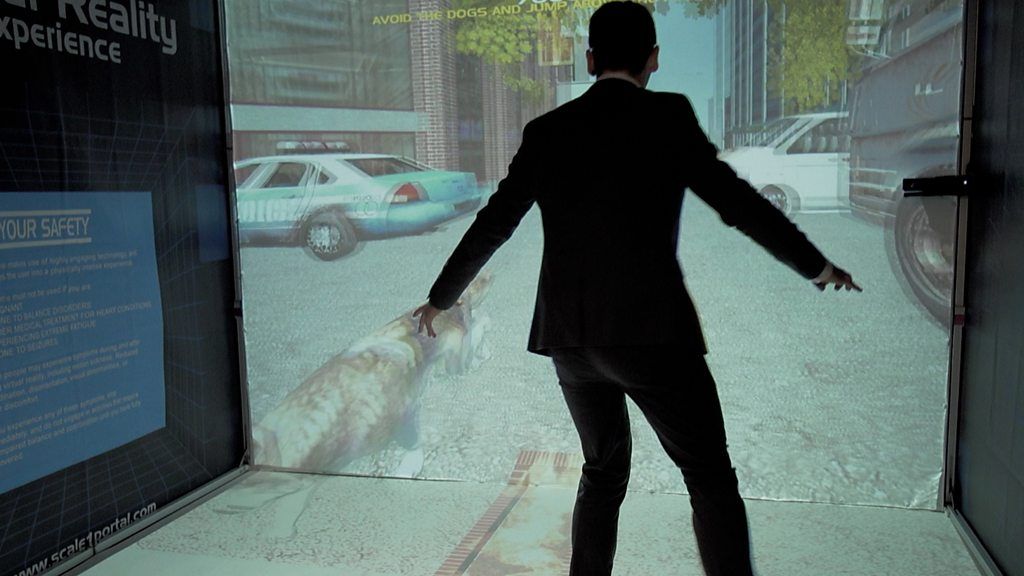The Royal Institution
Synthetic biology is a new, intriguing technology that could have a huge impact on humans and our environment. Adam Rutherford chairs a panel of experts, including Louise Horsfall, Paul Freemont, Susan Molyneux-Hodgson and Robert Edwards.
This event was organised by the Biochemical Society and Royal Society of Biology as part of Biology Week 2015: http://www.rsb.org.uk/get-involved/biologyweek.
Subscribe for regular science videos: http://bit.ly/RiSubscRibe
Watch the Q&A here: https://www.youtube.com/watch?v=YDbUYiTAMJU
Robert Edwards is Head of the School of Agriculture, Food & Development at Newcastle University. His interests are focussed on the biotransformation of synthetic compounds and natural products in plants and the manipulation of these pathways for applications in crop protection and biorefining using technologies including synthetic biology.
Paul Freemont is Co-director of Centre for Synthetic Biology and Innovation at Imperial College London. The Centre aims to develop foundational technologies to enable synthetic biology research in application areas like biosensors, biosynthesis, bioprocessing and metabolic and genome engineering and enable the translation of new synthetic biology technologies into industry.
Louise Horsfall is a Lecturer in Biotechnology at the University of Edinburgh. She is interested in multidisciplinary challenges involving Biotechnology, Synthetic Biology, Novel Enzymes and Protein Engineering. She is currently the elected co-chair of the Bioengineering and Bioprocessing Section of the European Federation of Biotechnology and a member of the EPSRC’s Early Career Forum in Manufacturing Research.
Susan Molyneux-Hodgson is Director of Research, Department of Sociological Studies, University of Sheffield. Susan co-founded and is currently Director of SATIS (Science and Technology in Society) research group in Sheffield. Her research is focused on three substantive areas: the sociology of scientific communities; science and society relations, and; interdisciplinary collaboration.
This event was organised in partnership with the Royal Society of Biology and the Biochemical Society as part of Biology Week 2015.
The Ri is on Twitter: http://twitter.com/ri_science
and Facebook: http://www.facebook.com/royalinstitution
and Tumblr: http://ri-science.tumblr.com/
Our editorial policy: http://www.rigb.org/home/editorial-policy
Subscribe for the latest science videos: http://bit.ly/RiNewsletter
Source




of course we can and why the fuck shouldn't we.
that with plastics is a hard one. we made plastic because of its properties and by introducing new microbes that can digest it, we remove one of the benefits we associate with plastics.
im not someone that thinks that we can keep these microbes 'inside'. They will get out and it will become a problem we would want to overcome again.
Can we do without plastics (or rather a specific attribute of them)? if so, then that removes my problems with creating these microbes.
32:00
I'm a little surprised, tbh. Science, to me, is the persuit of knowledge about our natural world. Whatever products can come out of that knowledge is not interesting to me, because we don't know yet what can be done.
I believe you limit yourself immensely if you are more interested in the persuit of a product, instead of knowledge. You might completely turn a blind eye to knowledge that could be so much more beneficial than the product/goal you are working on.
Not that I think there isn't a time and place to do work towards a product. For instance, with cancer, I'd really like for people to find a 'cure' (through synthetic biology or otherwise). But I'd still like there to be more former than latter.
freaking synths, man
If we can we shall, despite any protest.
ifound out about synthetic biology, from researc into, nanotechknology. via the stuydies from craig. ventner. p.h.d. and also from professor, stephern hawkins. but mostly from serfing the net.? it should become a lot more, PRO. ACTIVE.!!!. so long as it dosernt end up getting boaught. wholsale by the u,s. and pharma.?
Fap fap fap fap fap fap fap … Clearly, I LOVE a good train wreck …
You can tell that the second speaker had difficulty in simplifying her intelligent ideas for the general listener.
lol British humor is soo unnerving
If the ethics are considered the evaluator it has to hear the idea first before it can digest and assess that idea so if course it should go "second". It's not like a social scientist knows the science to be able to collaborate on the original idea. They have to wait and get the ideas dumbed down so they can be of any value. Right?
omg humans are stupid. This talk lacked a lot of science. Even using science it takes generations and hundreds of years to get results we need to answer these questions. We have WITH GOOD INTENTIONS messed up so much of our environment and health! Wakeup people. People also aren't fixing root causes. Population control immediately is the safest and most morally way to save us rather than all these unknowns of modifying the environment in ways we have no idea how it will have an impact on the ecological/symbiotic relationships out there. The lacking science is looking at all this historic mistakes we have made (many are still not known but obvious in how unhealthy our society has become in the past two decades) and using statistics to show the huge risk of doing this stuff moving forward.
Yes, but give it the ability to self-terminate painlessly at any time if it doesn't like being brought into existence. Actually I'd like that ability too, but that particular bill keeps failing in the UK parliament because they frightened of opportunist relatives.
if you make more food to feed more people, even more people will be born, and we dont really need more people on a planet.
that social scientist is everything i despise. Arrogant, obstructionist, manipulative.
oh that social 'science' person has no clue what actual science is. Why science and the 'ethics bit' is different? Because science is the only known process (at this moment) to gather data about nature of reality. And ethics is our evaluation of said reality, which has absolutely nothing to do with reality, it is just how we feel about it. So no, ethics, or party alignment should not go before science. (And social 'scientist' should stop calling themselves scientists, and I came from that world (I have a degree in bullshit spinning aka philosophy:) )
they're asking the wrong set of people.
I am certain I am surrounded by synthetic life already. The vast majority of people on earth are really mindless automatons. They have to be. It explains so much.
20:48 resident evil
Aside from Paul Freemont and the journalist the rest were completely unproductive in this discussion , Susan Molyneux-Hodgson reasoning was particularity irritating ,her sarcastic replies seemed redundant in my opinion.
almost everything man made will brake ,become worn , crashes or is just a gimmick for awhile and doesn't work do we really want this sitting between our skin cells, is my only argument, but if trials prove successful and is not sugar coated with money then I am all for it , I find it hard to believe though looking around we are not that advanced yet 😛
that polling wasn't very scientific
Looks like everyone's cheering to the great new future. Yes, we're gonna use genetic engineering to cure human illness. That's great. But there seems to be no one here who worries about unintended consequences of flushing all this stuff literally down the toilet – into nature. There wasn't anyone on this panel who worried about possibly messing with the microbiological backbone of the entire life of on the planet. The stuff that's been around long before multi-cellular life, and much longer before us. It's handled like: the stuff we don't see and don't know about probably won't matter, we're engineers, we solve problems, and if there is a problem, we're gonna solve that too. But I think sometimes engineers are bumbling idiots, especially when shown a lot of money. Because you can create new, bigger problems, that then might make even more money if you fix them. But perhaps there comes the day when you find you're mistaken about that do-ability. Does anyone recall the great promises of nuclear fission technology? That too was supposed to be all good, the saviour for human kind. What do now with those stockpiles of depleted Uranium, those thousands of tons of radioactive waste? So the same question here: when all your side products are discharged into nature: do we even have the faintest idea how nature can deal with it? Suppose for instance you make – perhaps inadvertently – a systematic change to certain soil bacteria that proves to be evolutionary advantageous, so that an artificially modified species within a few years takes over other species. How does it pan out may not be found out in a laboratory experiment, especially if no one asks the question. I don't care to sound like a spoiler. I still wish us luck and hope I'm just too worried.
If we could engineer an organism, or family of organism, that excel at breaking down plastic waste in an aquatic environment, would it possibly be worthwhile to flood landfills and inject same said organism(s)?
In China, the sky's the limit right now with human gene splicing and the like.
We'll need some serious UN legal governance if we don't want to here about unethical experimentation; human or otherwise.
Sounds exciting, the synthetic biodegradation of human (pollution) waste. I love it!
But what moral code would prevent the synthetic biodegradation …of humans themselves? The perfect weapon.
The Geneva Convention?
Why would it be considered synthetic? Seems it is more like normal evolution to me, though very rapidly sped up.
They audience is full of crap. He’s basically asking if you would eat GMO’s and/or synthetically made food. People are paranoid of that. I would eat it because I understand what a GMO is but so many people uneducated and don’t understand what a GMO really is. They are sure that they know but they don’t. Although I wouldn’t eat meat regardless because of how we treat animals. Synthetic meat sounds disgusting to me but I don’t think there’s anything wrong with other people eating it.
Things seem to stall when it gets to the corporate manufacture and distribution ? Why is that? Not enough financial gain for such life saving medicines? There is such a wide gulf between humanity and money makers. So sad.